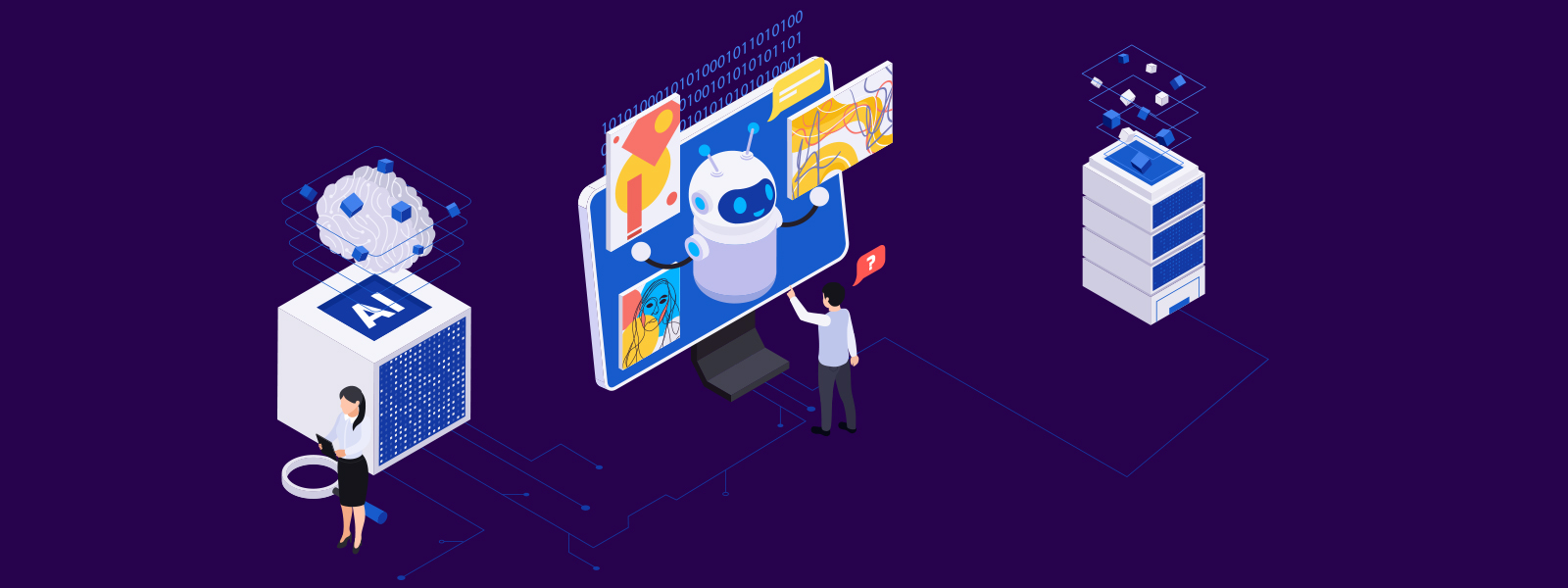Introduction
AI-based data extraction has revolutionized how organizations extract valuable information from vast unstructured data. With Artificial Intelligence and Machine Learning (ML) advancements, data extraction processes have become more accurate, efficient, and scalable. We will explore the future of AI-based data extraction, highlighting emerging trends and technologies that will shape its evolution and impact various industries.
-
Natural Language Processing (NLP) Advancements
Natural Language Processing (NLP) is a critical component of AI-based data extraction. The future of NLP holds exciting potential for extracting insights from unstructured textual data. Emerging trends in NLP, such as contextual understanding, sentiment analysis, and language generation, will enable more accurate and nuanced data extraction. With improved language models and semantic understanding, AI systems will better comprehend complex documents, enabling more precise and context-aware data extraction.
-
Deep Learning Techniques
Deep Learning techniques, particularly deep neural networks, have significantly advanced AI-based data extraction. As these techniques evolve, the future holds promise for even more sophisticated data extraction capabilities. Deep Learning architectures like convolutional neural networks (CNNs) and recurrent neural networks (RNNs) will allow AI models to extract information from various data types, including images, videos, and audio. This opens up new possibilities for data extraction in domains such as visual analytics and voice recognition.
-
Reinforcement Learning for Data Extraction
Reinforcement Learning (RL) holds immense potential for AI-based data extraction. RL algorithms enable systems to learn through trial and error, maximizing rewards based on their actions. In the context of data extraction, RL can be used to optimize extraction processes, learn from user feedback, and adapt to changing data patterns. By incorporating RL techniques, AI systems can continuously improve their extraction performance, leading to higher accuracy, faster processing, and reduced manual intervention.
-
Data Extraction from Unstructured Sources
Unstructured data sources, such as social media posts, emails, and documents, present unique challenges for data extraction. However, the future of AI-based data extraction aims to overcome these challenges. Emerging technologies, like unsupervised learning and unsupervised feature learning, will enable AI models to extract valuable insights from unstructured sources. Combining NLP, computer vision, and pattern recognition techniques, AI systems can extract structured information from unstructured data, unlocking a wealth of untapped knowledge.
-
Integration with Robotic Process Automation (RPA)
Integrating AI-based data extraction with Robotic Process Automation (RPA) holds significant potential for automating end-to-end business processes. RPA systems can leverage AI models to extract data from various sources and seamlessly integrate it into downstream systems and workflows. This integration streamlines data-intensive tasks, enhances process efficiency, and reduces manual errors. The future of AI-based data extraction will see increased synergy with RPA, enabling organizations to achieve greater operational agility and productivity.
-
Ethical Considerations and Responsible AI
As AI-based data extraction becomes more prevalent, addressing ethical considerations and ensuring responsible use is crucial. The future of AI-based data extraction will focus on transparency, fairness, and accountability. Efforts to develop explainable AI models, address bias and ensure data privacy will be critical. Organizations must prioritize ethical practices, adhere to regulatory requirements, and establish frameworks for responsible AI usage.
Conclusion
The future of AI-based data extraction is filled with exciting possibilities. Advancements in NLP, deep learning techniques, reinforcement learning, and data extraction from unstructured sources will unlock new avenues for extracting valuable insights. Integration with RPA and the focus on ethical considerations and responsible AI usage will shape the future landscape of data extraction. As organizations harness these emerging trends and technologies, they can extract information more accurately, efficiently, and ethically, paving the way for enhanced decision-making, improved productivity, and transformative outcomes across industries.


Leave A Comment